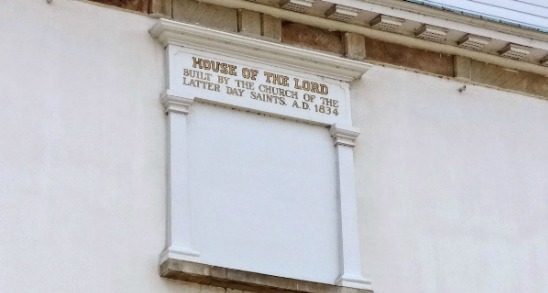Question
Gramps,
Does BYU funding come from my tithing donations?
Dermot
Answer
Dermot,
The quick answer to your question is yes. Which is why you will notice that the tuition amount for members is substantially less than it is for non-members. But let me also provide some additional information.
Tithing is the Lord’s law of finance for His Church. Tithing donations are always used for the Lord’s purposes, which He reveals through a council of His servants. Some of these uses are:
Building and maintaining temples, chapels, and other Church buildings.
Supporting the activities and operations of local Church congregations.
Supporting the programs of the Church, including education and family history research.
Tithes are paid privately, and information about donations is kept strictly confidential.
President Gordon B. Hinkley during an October 1999 conference session had this to say as to why the Church financially backs BYU:
The Church is an ecclesiastical organization. It is an eleemosynary society. It is concerned primarily with worship of the Lord Jesus Christ. Our great mission is to testify of His living reality. We should not be involved with anything not in harmony with this major objective. We should be involved with whatever is in harmony with this objective.
We do many things which on the surface do not appear to be associated with this overriding pattern. I’m going to speak of two or three of these. Among these is the operation of Brigham Young University. People ask why we sponsor such a large and costly institution that is basically concerned with secular education. The question is appropriate. This sponsorship has a doctrinal root.
The Lord has decreed in revelation:
“Teach ye diligently and my grace shall attend you, that you may be instructed more perfectly in theory, in principle, in doctrine, in the law of the gospel, in all things that pertain unto the kingdom of God, that are expedient for you to understand;
“Of things both in heaven and in the earth, and under the earth; things which have been, things which are, things which must shortly come to pass; things which are at home, things which are abroad; the wars and the perplexities of the nations, and the judgments which are on the land; and a knowledge also of countries and of kingdoms—
“That ye may be prepared in all things when I shall send you again to magnify the calling whereunto I have called you, and the mission with which I have commissioned you” (D&C 88:78–80).
It is apparent that we are obligated not only to learn of ecclesiastical matters but also of secular matters. There is a tradition in the Church that deals with these things. There was the School of the Prophets in Kirtland. The Seventies Hall in Nauvoo was used for educational purposes. A university was projected in Nauvoo.
When the Saints arrived in these western valleys, academies were established for the training of the young. The University of Utah was chartered in 1850 by our pioneer forebears. Brigham Young University came along later, outlasting most of the Church academies. It has grown until its present enrollment numbers more than 27,000. That is a large number of students, but it is a very small fraction of the young people of the Church worthy of a university education. We can accommodate only a relatively few. If we cannot give to all, why should we give to any? The answer is that if we cannot give to all, let us give to as many as we can. The number who can be accommodated on campus is finite, but the influence of the university is infinite. Tremendous efforts are being made to enlarge and extend that influence.
How fortunate are those who have the opportunity to attend. I almost become angry when I hear of complaining among the students or the faculty. I am grateful to be able to say that with very few exceptions those who come to learn and those who teach are appreciative and mindful of the great blessing that is theirs.
Moreover, the university has brought much favorable notice to the Church. Its sponsoring organization, the Church, is widely recognized. It has become known for standards and ideals which have been written about and talked about and which have let the world know of those things in which we believe. Its academic programs and its athletic programs have both brought honor to the university and the Church. And as generations of students move through its halls and on to graduation and then out across the world, they will bring honor to their alma mater and its sponsor, The Church of Jesus Christ of Latter-day Saints.
We shall continue to support BYU and its Hawaii campus. We shall continue to support Ricks College. We are not likely to build other university campuses. We wish that we might build enough to accommodate all who desire to attend. But this is out of the question. They are so terribly expensive. But we shall keep these as flagships testifying to the great and earnest commitment of this Church to education, both ecclesiastical and secular, and while doing so prove to the world that excellent secular learning can be gained in an environment of religious faith.
Backing up these institutions will be our other schools, our institutes of religion, scattered far and wide, and the great seminary system of the Church.
It is hoped that through these our youth, wherever they may be, may experience some of the good to be had at BYU.
We have been taught that whatever knowledge we accumulate during our mortal journey will carry with us through the eternities. The idea of education isn’t only secular but it is also spiritual.
I hope this answers your question satisfactorily.
Gramps







